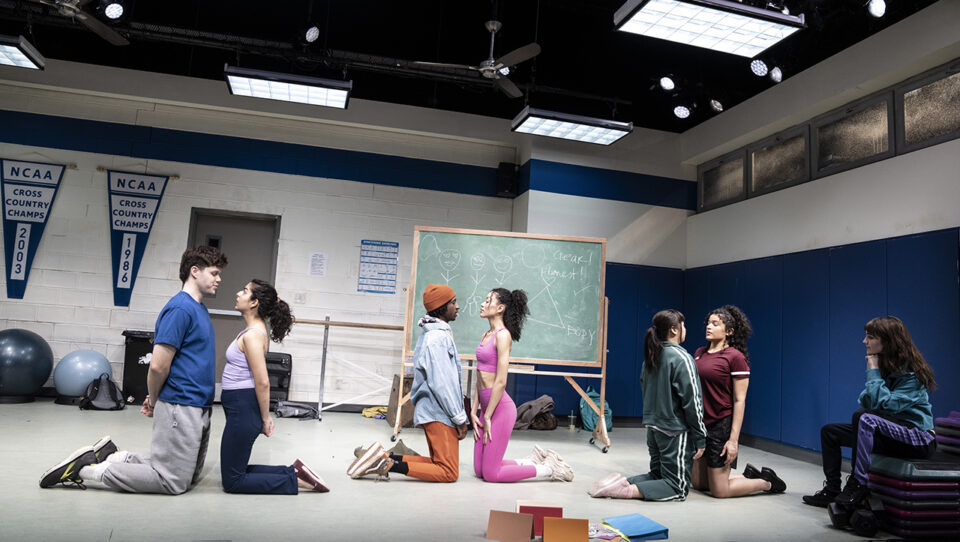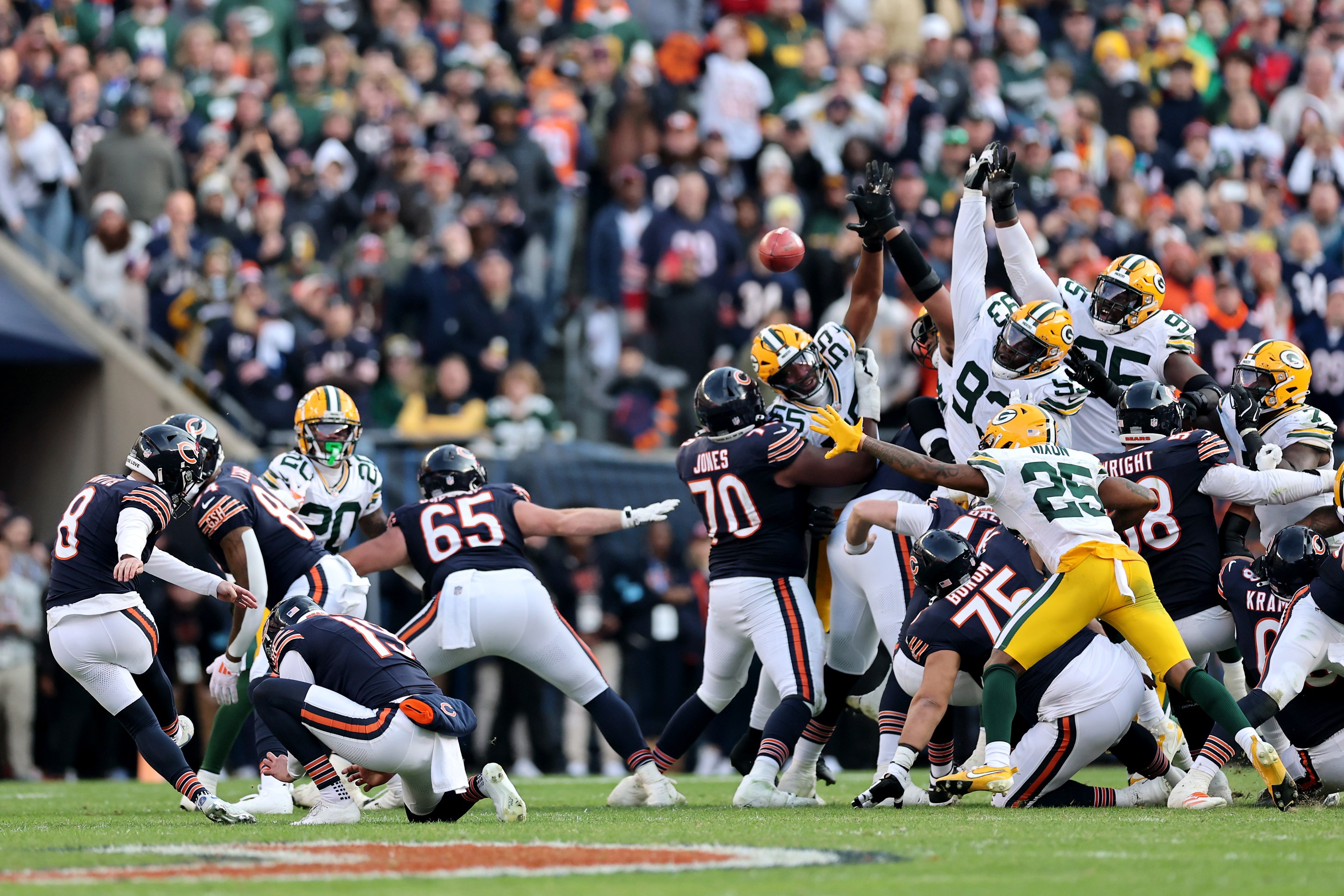How To Defend Yourself is the kind of play that can make you trust the men around you in the audience less. Maybe the women, too, but that wasn’t my experience. There was one mini-monologue, specifically, that freaked me out in this way, delivered by Jayson Lee, playing a college kid named Eggo. He’s the quieter of the two frat boys who get introduced maybe a third of the way through the show, given mostly some weird, funny little asides. But during an organized group exercise around consent, he almost explodes with the righteous fury of a canceled stand-up comedian, venting about the inscrutability of women. From the 2018 version, Liliana Padilla’s thesis at UC San Diego, which is pretty close to what I remember hearing:
EGGO
I totally have sex.
And half the women are like: hit me, baby, please hit me
And I’m like, oooh are you sure? Can I get you asking on tape? On a contract?
They’re like: shutup - just do it - stop thinking
Well, I gotta think, ok? Cuz my bros who don’t – well -
I’m not trying to be a douchebag here
I am only speaking for myself. I want that to be clear.
I can go to the gym and like bite off your thong or whatever it is you want me to do. But I’m not gonna read your fucking mind. I can’t read your fucking mind. Girls want you to read their fucking minds and then be everything to them. If you’re flirting with me, if you come up to me at a bar and press your tits on me, I’m assuming you want to fuck, sorry!
BRANDI
Well, you shouldn’t
EGGO
Is that problematic? Is that the wrong thing to say? To think?
Cuz from my vantage point, pressing tits equals desire to do something. And then girls are like “ha ha ha didn’t mean it; Well, what did you mean?”
BRANDI
They’re just flirting
EGGO
Don’t flirt like that! My last kind of girlfriend, fuck if I know, she was like: “I’m a virgin” which was NOT TRUE and she asked me to fuck her gently which I did like a gentle-man, then she broke up with me cuz I couldn’t satisfy her and it’s like BITCH if you want me to SATISFY you then tell me what you want.
To view Eggo’s frustration here as purely monstrous is, I think, a bad-faith reading of a play that shows individuals at their worst and weakest but aims its critiques higher. But it was jarring, in the performance on Tuesday night, how distinctively masculine the laughter in the theater was at this spot. Maybe it’s because Lee’s performance mimicked the kind of outraged bluster that’s often mistaken for comedy, but I could not dismiss this moment even on my way home. I wanted to ask the men in that room: Do you really recognize this? Is it that hard to understand what women want? Does it give you a kind of nervous excitement, hearing him say the things you only think to yourself when you fall asleep alone?
How To Defend Yourself, which is running for a couple more weeks at New York Theatre Workshop on 2nd Avenue and 4th Street, has a premise that fits neatly into the zeitgeist but attacks it in a much riskier way than I could have expected. It takes place in the aftermath of an unshown sexual assault on a college campus. A couple underclassmen, Mojdeh and Diana, go to a newly created, sparsely attended self-defense class run by Brandi and Kara, with the ulterior motive of maybe getting a leg up on rushing the instructors’ sorority. Also there is Nikki, painfully shy, and the aforementioned frat boys, who are struggling with their villainous roles in the narrative of this class.
Padilla’s writing is technically sharp in the way you’d expect from a former thesis project. It manages the tricky job of balancing its attention across all characters over an hour and 40 minutes without resorting to rough sketches, and it does the thing that good plays do where it introduces someone, makes you think you get them, and then peels back the layers to reveal something more complicated. It’s never didactic or clichéd. The action, co-directed by Rachel Chavkin, Padilla, and Steph Paul, doesn’t lose momentum even though it’s mostly verbal and confined to one room. There are a couple of class activities that are staged as dance breaks, which felt a little unfaithful to the reality of what was being presented, but one dance in particular gives the show probably its coolest and most legitimately nice moment, so I ultimately left my misgivings in my seat.
How To Defend Yourself echoes the dynamics of one of my favorite plays of the last few years: Will Arbery’s 2020 Pulitzer Prize finalist Heroes of the Fourth Turning. That play, about a group of young Catholics reuniting in their rural university town, dramatized these still-growing people trying to wrap their brains around a flawed institution that is failing them. In this case, however, patriarchy and rape culture are even more inescapable than the dogma of organized religion. In a doofy but well-meaning way, the other frat guy, Andy, tells the women about his “Man Box,” which is his conception of all the expectations and responsibilities he carries as a masculine person in this world. He says it like a good thing, like he just needs to make sure “empathy for women” is in the box with all the other stuff, but left unsaid is the obvious metaphor of a box as a suffocating trap.
A lesser play might have unwittingly contributed to the binary system it critiques by positing that gender roles are merely a prison that oppresses two large swaths of people in equal and opposite ways. But How To Defend Yourself is both too prickly and too smart for such a tweet-thread of a conclusion. The work, like plenty of things you’ve probably seen already, is unafraid to explore how sex intersects with violence and self-harm. But where it rises to something new and compelling is that it unflinchingly lets these kids work through the reality that sometimes violence and self-harm feels … pleasurable? And not just for the men, but for the people we expect to see as victims, too. Their knowledge of all the ways that a clean, thoughtful consent workshop is nothing like the real world tugs at them and disrupts their most earnest efforts to be safe and in control of their bodies.
You may have decided by this point that this play isn’t a fun watch. You are mostly right. The acting is brilliant and the writing is proficient and it’s certainly never a boring show, but more and more I found myself pinching the skin near my left elbow to ensure I stayed quiet and seated. Nothing explicitly abusive or sickening happens on stage, but just the presence of these ideas, in a room full of strangers, can set you on edge. Talia Ryder’s Brandi in particular, who starts off as an extremely well-studied impression of a chipper-yet-intense Peloton or Soulcycle instructor, undergoes some of the most startlingly rendered psychological horror I’ve ever seen on stage when confronted with her own powerlessness. (And, by extension, the powerlessness of every woman in that room, actor and audience.)
The ending is much more abstract than what you’ll find if you read the thesis, which is an improvement. In some ways I found it cynical to a chilling degree, for the way it seemed unwilling to compromise on the idea of misogyny as omnipresent malevolence. But ultimately, it threads the needle of condemning the world without putting the ordinary people in it to death. Everyone in the class has good intentions, and even if I glanced sideways at them a few times, I choose to believe everyone in the theater did, too. How To Defend Yourself leaves you still searching, trying to make that connection that will teach you a better way to navigate sex and gender. It can put you in a despairing mood when you understand you may not get there in a lifetime, let alone one night. But there is some beauty in trying.





